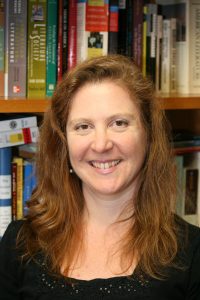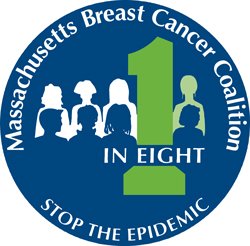 Dear MBCC Supporter,
Dear MBCC Supporter,
When I received my first cancer diagnosis, my mind went into overdrive. A million thoughts went through my head. First and foremost was: why me?
The possible responses-But I ate all my veggies. I exercise regularly. I go to my annual wellness appointments.-reveal the illusion of control we all cling to.
But what I soon learned is that we have next to no control with such a diagnosis and cancer does not discriminate. I’ve met all kinds of women who have breast cancer. Thin and fat. Young and old. Vegetarians and meat eaters. Drinkers and teetotalers.
I remember that soon after my diagnosis, an acquaintance said to me, “We only eat organic, grass-fed beef” as though to say “We won’t get cancer like you did.” The thing is, before my diagnosis, I had been a vegetarian for more than two decades!
It doesn’t matter what you do as an individual. The most important risk factor is simply being a woman. When the topic of prevention comes up, it usually centers on lifestyle choices. But being a woman is not a lifestyle. Drinking water is not a lifestyle. Breathing is not a lifestyle.
We can tick off the things we do and do not do as individuals until we’re blue in the face, but the reality is that what we choose to do in our daily lives has very little impact on who hears their doctor say the word cancer.
The fact is more than 250,000 women (and men) are diagnosed with breast cancer every year. More than 40,000 a year die from the disease. When I first heard that statistic, I stopped breathing for a minute. Over 40,000 women and men die every year from breast cancer. That’s more fatalities than annual gun-related deaths.
We are facing an epidemic.
But we’re looking at that epidemic backwards when we focus on the cure at the expense of prevention.
After my lumpectomy, my surgeon said I was cured. Today I face a recurrence in the same breast. There is no cure. There is treatment and then there is waiting for the other shoe to drop, so to speak.
I am grateful every day for treatment and I am deeply appreciative of all the advancements being made in treatment. I was fortunate enough to participate in a clinical drug trial that may benefit me and those who will be facing a similar diagnosis in the future. But I don’t want more women to be diagnosed with breast cancer. I want my 12-year-old daughter to live a long life free from fear of cancer.
For that goal-no more diagnoses!-to be reached, we have to accept that there may never be a cure for cancer. We have to understand that there is a lot of profit in the cancer industry and its pink ribbon campaigns.
For prevention to work, we have to focus on the root causes of breast cancer and all cancers. We know that only 5% – 10% of breast cancers are associated with a family history of the disease. What we need is more time and money spent investigating and educating ourselves about the environmental causes of breast cancer.
We all breathe the same air. We drink the same water. We share the same environmental resources. We are subject to the same government policies.
Soon after my first diagnosis, my primary care physician told me about MBCC and its tireless support for prevention research and education. It heartens me to know that MBCC exists and advocates for a future without cancer. If you feel the same way I do, I urge you to make a donation to MBCC so that this organization can continue much-needed efforts toward prevention.
MBCC gives me hope that my daughter-and all of our daughters and sons-might never hear the words, “You have cancer.”
Sincerely,
![]()
Justine Dymond
